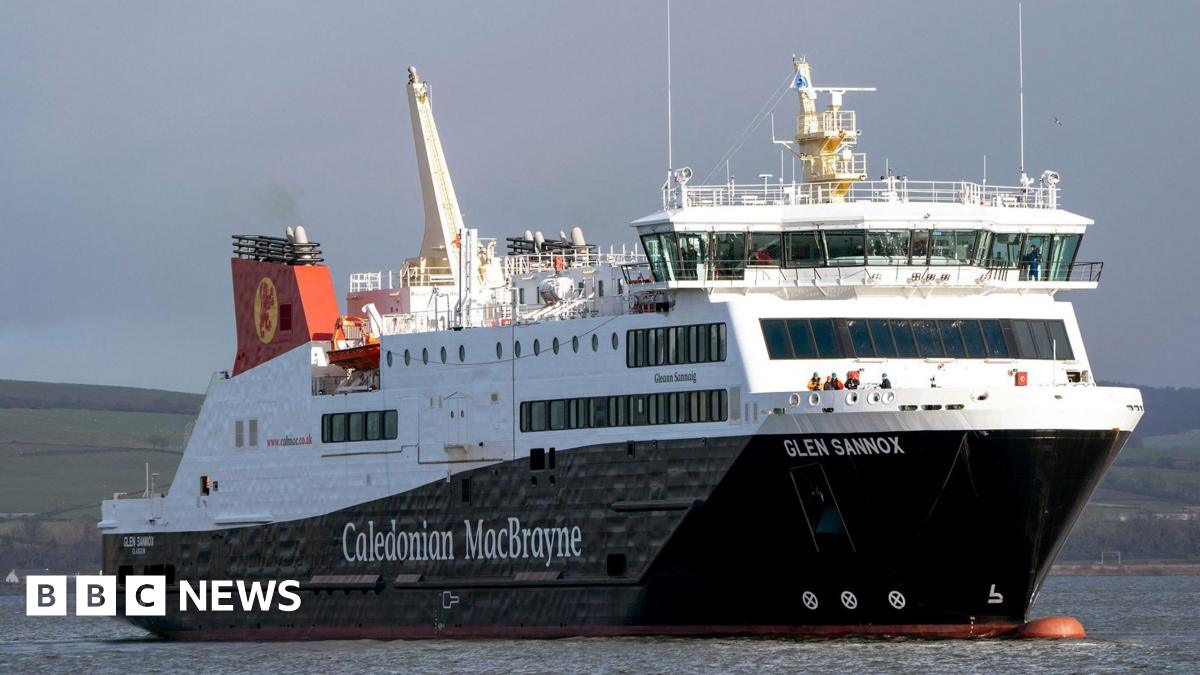World
Glen Sannox: ‘Green’ ferry has higher emissions than diesel ship

There is also no local supply of LNG in Scotland, so the gas has to be brought up from a terminal in Kent using diesel road tankers.
This 445-mile road journey adds the equivalent of 140 tonnes of CO2 per year, compared to 19 tonnes for transporting MGO.
Ferries procurement agency CMAL, which owns Glen Sannox and its sister ship Glen Rosa, began proposing LNG as a lower emissions ferry fuel as long ago as 2012.
In a statement it said LNG was considered “the best option” at the time, and was always intended as a “transition fuel”.
A CMAL spokesperson added: “Due to the difference in vessel size, propulsion power and expected sailing time, it is inaccurate to draw direct comparisons between the emissions of older vessels and MV Glen Sannox.
“The latter is a much newer vessel which is bigger and more powerful than the former, reflecting increased demand on ferry services.”
Ferry operator CalMac said passenger and vehicle numbers on the Arran route had increased significantly over the past 30 years.
“More power is needed for the size of the vessel that can meet that demand, particularly carrying cars, and it should offer greater resilience against adverse weather,” a spokesperson said.
“As a first in class vessel, we will learn more and more about MV Glen Sannox and her fuel consumption as we sail her.”









